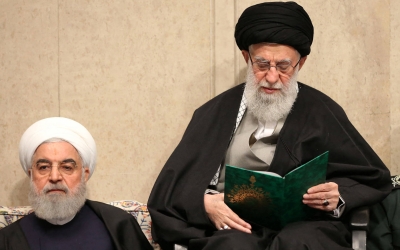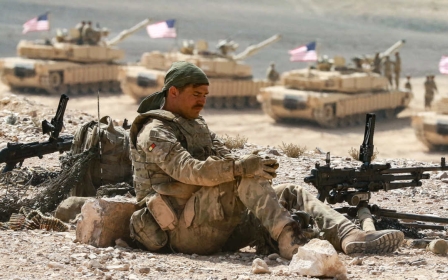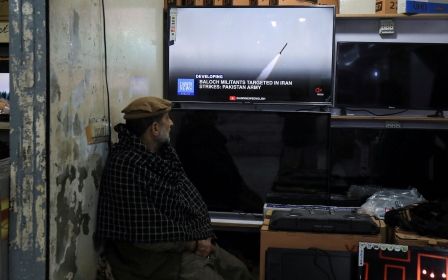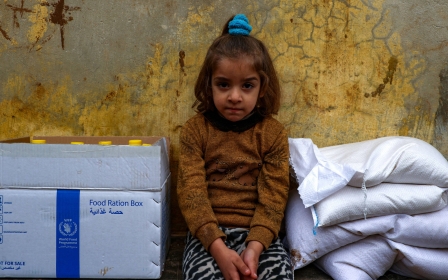Iran's Revolutionary Guards 'pull out of Syria after Israeli strikes'
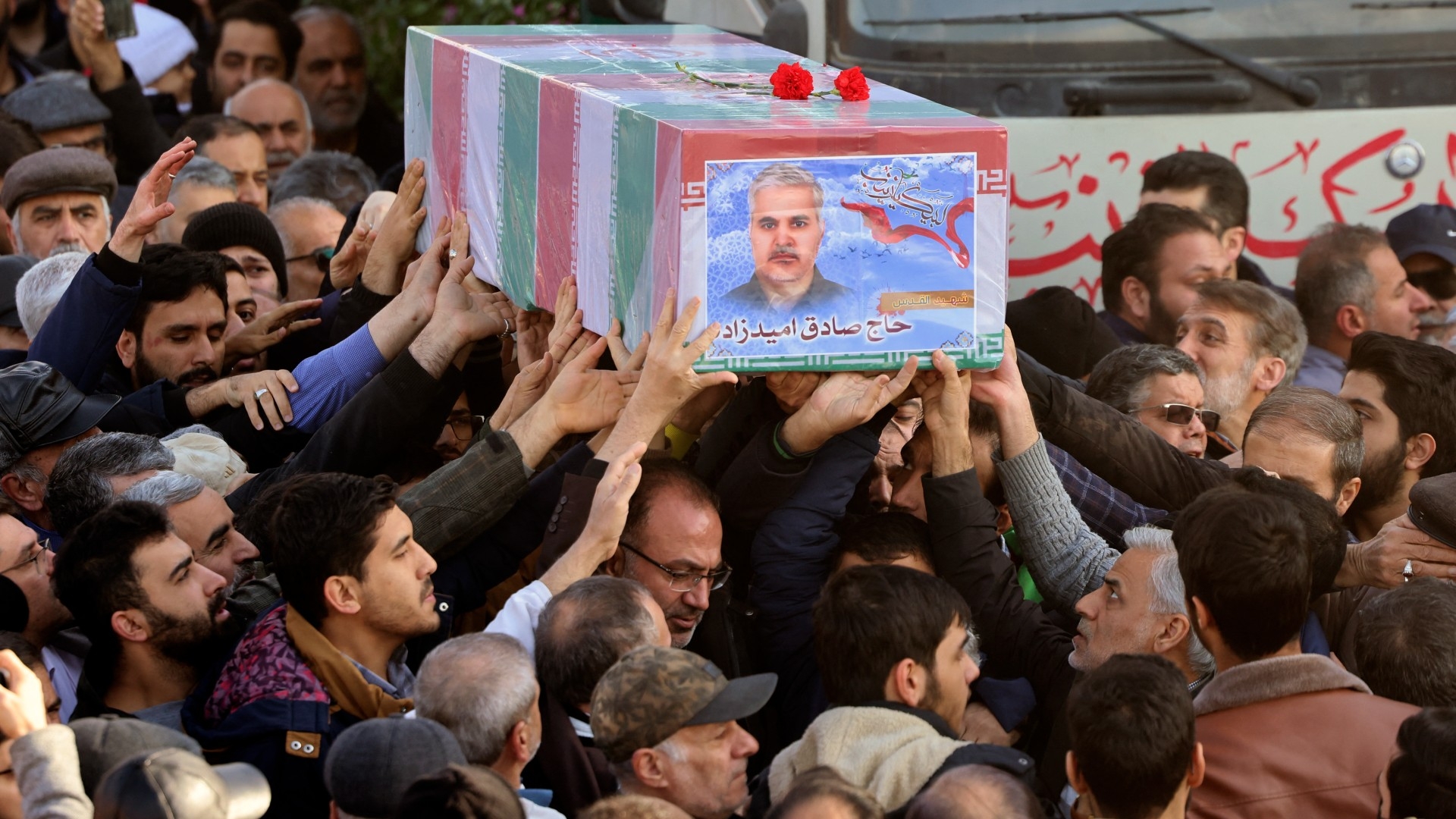
Iran's Islamic Revolutionary Guard Corps (IRGC) will pull out senior officers deployed in Syria following several Israeli attacks in recent months, according to a report by Reuters on Thursday.
Since December, Israeli strikes in Syria have killed at least half a dozen Iranian officers, including one of the IRGC's top intelligence generals.
Five sources familiar with the matter told Reuters that Iran had no intention of leaving Syria entirely, but was now reconsidering the best approach since the war on Gaza broke out on 7 October.
The sources said the senior and mid-ranking officers had withdrawn to prevent Iran being dragged directly into a regional war.
Several Iranian-backed groups, including in Lebanon, Yemen, Iraq and Syria, have directly engaged with Israeli and US forces since 7 October.
Earlier this week, Kataeb Hezbollah, an Iran-backed Iraqi paramilitary group, announced it would halt military and security actions against US forces.
It came after the US said that a drone strike that killed three American soldiers in Jordan on Sunday had "the footprints of Kataeb Hezbollah" - and vowed it would respond.
"We announce the suspension of military and security operations against the occupation forces in order to prevent embarrassment to the Iraqi government," said Abu Hussein al-Hamidawi, secretary-general of the paramilitary group.
"We will continue to defend our people in Gaza in other ways."
Information leaks
Iran's envoy to the United Nations, Amir Saeid Iravani, warned that Tehran would swiftly respond to any attack on its territory, interests or nationals outside its borders, state media reported on Wednesday.
Tehran has sent support to Syrian President Bashar al-Assad since civil war broke out in 2011. That has included sending thousands of militia fighters from across the region, as well as senior IRGC officers in advisory roles.
"The Iranians won't abandon Syria but they reduced their presence and movements to the greatest extent," a source told Reuters.
On 20 January, an Israeli missile strike flattened a building used as an IRGC base in Damascus, killing five Iranians and an unspecified number of Syrian troops.
It came a month after IRGC commander Seyyed Reza Mousavi, also known by his nom de guerre, Seyyed Razi, was killed in an Israeli missile attack in the Zainabiya neighbourhood of the Syrian capital.
The state news agency IRNA said Seyyed Razi was the senior military adviser in Syria, describing him as "one of the greatest and most prominent commanders of the IRGC's Quds Force".
Al-Alam, the Arabic branch of Iran's state TV channel, said he was a longtime associate of Qassem Soleimani, adding: "For 25 years, he was active among Iran's proxy forces in the region."
Iran's Supreme Leader Ayatollah Ali Khamenei led prayers at the commander's funeral.
Several sources told Reuters that Tehran was concerned about information leaks and intelligence breaches from within Syrian security forces playing a part in the deadly Israeli strikes. As a result, the IRGC had relocated its operational sites and the residences of its officers.
Middle East Eye propose une couverture et une analyse indépendantes et incomparables du Moyen-Orient, de l’Afrique du Nord et d’autres régions du monde. Pour en savoir plus sur la reprise de ce contenu et les frais qui s’appliquent, veuillez remplir ce formulaire [en anglais]. Pour en savoir plus sur MEE, cliquez ici [en anglais].


